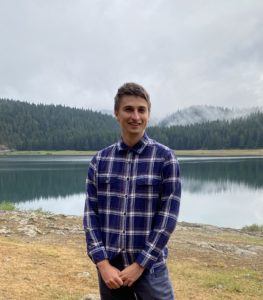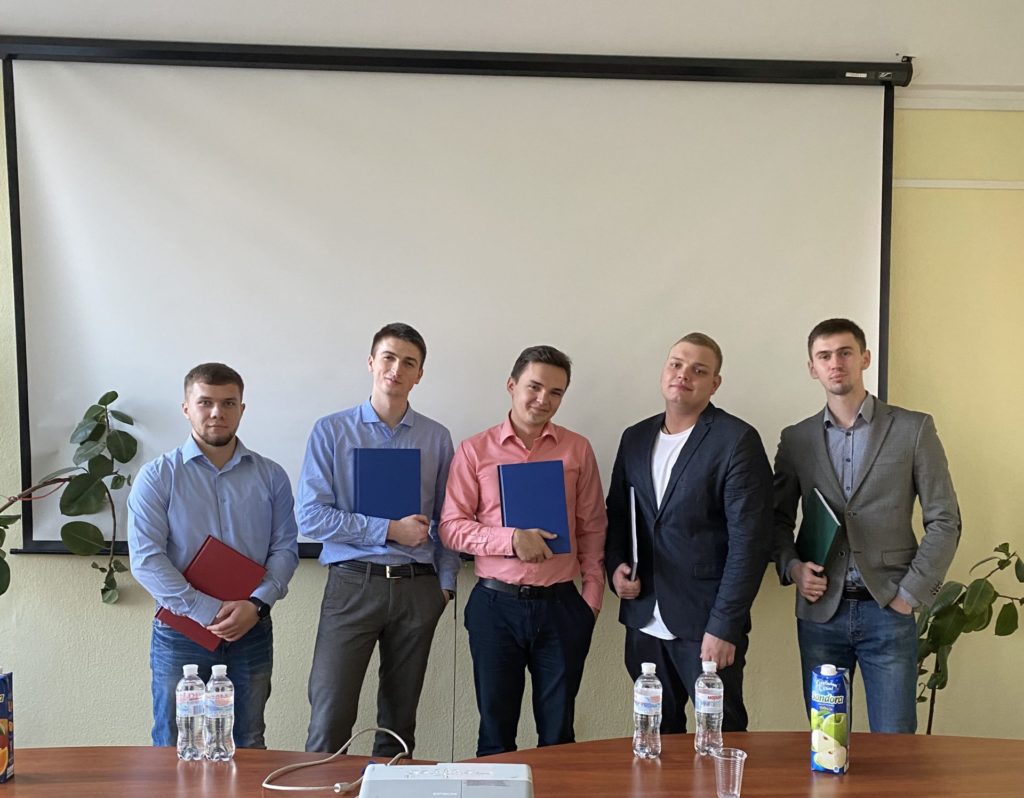
About the origins of interest in the energy sector
I have always had a lot of interests. I grew up a curious child and was interested in many different things. I became interested in energy quite late – probably it happened during my secondary school when I had to decide on my future profession. There were plenty of people from the energy field around me, so their stories greatly influenced my interest in the sector. And I also liked math.
About favorite classes at school
I did not incline any subject – I was rather good at all of them. But I always had an excellent sense of people. It was the teacher who influenced my attitude to the subject, not the subject itself. My favorite subjects (taught by my favorite teachers) were mathematics, history, Ukrainian language, Ukrainian and foreign literature. I also liked physical education – primarily for the opportunity to play football with my friends, plus they gave you grades for this:)
About the choice of university and specialization
I did not hesitate when choosing a university – I knew that I wanted to go to Kyiv Polytechnic Institute (KPI) because it was the best technical higher education institution in Ukraine; many of my friends studied there and recommended it.
On the contrary, choosing a specialization was very difficult for me because I thought I was deciding what to do all my life. Later I understood that you should not be afraid to make mistakes. You will learn throughout life, as technology is evolving and the labor market is constantly changing.
In any case, energy won the internal struggle because I was confident about the prospects of this sector, and I successfully enrolled in “Energy Efficiency and Energy Management,” which I do not regret. And I still sincerely believe that the system that forces you at the age of 16-17 to choose that will impact your entire life is wrong.
How do people choose a career between gas, electricity, and heating?
They do not. If interested in energy, begin to develop in this direction, and then it becomes clear what you like most. The distinction between electricity, gas, and heat is rather conventional, as new sectors like hydrogen or biomethane appear. In addition, you can always change the specialization and move from one sector to another. I would instead advise you to decide what you like to do more: work with numbers, people, technologies, etc. – and then to choose a job in the field that best suits your preferences.
About studying at the university
In the beginning, studying was challenging but exciting. Then it gets more complicated, but for another reason: you begin to understand that the knowledge that most teachers give you is just outdated information that you will not need in your life. At the same time, students do not have an opportunity to choose subjects and compile their curriculum. For example, the curriculum includes highly specialized disciplines such as “Asynchronous/Synchronous Motors,” “High Voltage Engineering,” etc., which are needed if you want to work in this field (and if the industry still uses knowledge from the 1960s). The same goes for manual technical drawing (show me who draws manually in the 21st century), or English, which is learned via studying the same texts not changing for ages.
About pleasant surprises, difficulties, and disappointments in the process of education
The most valuable asset I gained in the education process was not knowledge but the community. Here I found friends – ambitious people who strive to develop and reach heights and therefore motivate me. This community of people is now the only pillar that makes higher education relevant. The biggest disappointment is, of course, the quality of education and the attitude of some teachers towards students. Here I want to say that there are still really excellent, educated teachers who want to teach, who themselves continue to learn and develop. But, unfortunately, they are a minority. It seems that most teachers work at the university because nobody hires them anywhere else.
The first earnings
The first part-time job for me was probably writing term papers and labs for other students. Also, at the age of 17, I went to Odessa for a month to lay a 35 Kv underground cable. It was an exciting experience. My friend and I spontaneously decided to make some money in the summer, and my uncle said he could arrange it, so we went to one of the facilities where he worked to lay this cable. When you pull such a cable on the ground, you understand very well how the force of friction works and how powerful it is. Add a forty-degree heat and the absence of anyone alive within a radius of ten kilometers. I still have at home a piece of the cable I brought as a souvenir.
And then USAID ESP…
I joined the Energy Security Project spontaneously. At that time, I had a job that I did not like, so I visited a job fair held at KPI (opportunities can be found right at the university, so I advise everyone to take an active part in university life and look for their first job while studying). So, we came to the job fair, and there was an ESP stand. I already knew something about USAID, talked to ESP representatives, and realized that I wanted to work there. I submitted a CV, successfully passed the interview – and was hired as an intern for the gas team. In the ESP, I started with doing typical intern stuff: preparing presentations, writing MoMs, etc. Later, when I got promoted for the first time, I began to receive more challenging tasks through which I became a responsible person. Currently, I have my projects for which I’m performing project management role, controlling timeliness and quality of the delivered work. Additionally, I have my role in the team (which is hydrogen) where I’m the go-to person and deal with day-to-day tasks received by the team. The best thing in working in the ESP is to be close to the essential things that can affect Ukraine and direct my expertise to improve them.
Goals and ambitions
I want to find my place in life. I want to develop myself and help the country develop.

